In the program I'm writing, I have a vector whose elements are instances of a struct called "person", and I'm allowing the user to add elements to the vector. I've tried two methods of actually adding elements to the vector so far, and neither of them has worked. I'm storing the user's input in a variable called inputtedPerson that is an instance of "person", and then I'm trying to add that variable to the vector. First I tried Sample.at(0) = inputtedPerson, but that ended up giving me this error when I tried to run the program in GDB.
Then, I tried creating an iterator called iter, setting it to Sample.begin(), and having the program add the element to the beginning of the vector by setting *iter as equal to inputtedPerson. (For every subsequent person that is added, the iterator is incremented by one, such that the people are added in sequential order.) Unfortunately, that produced a segmentation fault error:
What am I doing wrong?
Here's my code:
// DelibDem.cpp : Defines the entry point for the application.
//
#include "DelibDem.h"
#include <stdio.h>
#include <iostream>
#include <fstream>
#include <vector>
//initializing variables
using namespace std;
bool continue_ = true;
string name = "";
string partyID = "";
int numD = 0;
int numR = 0;
int difference = 0;
int vectorSize = 0;
int newVectorSize = 0;
int demPos = 0;
int repPos = 0;
struct person{
string Name;
string PartyID;
string equivalentName;
string equivalenceClass;
};
vector<person> Sample;
std::vector<person>::iterator iter = Sample.begin();
int main()
{
//user adds people to the vector
while (continue_ == true) {
string personName;
string personPartyID;
string answer;
person inputtedPerson;
cout << "Enter a person's name: ";
std::getline(cin, personName);
//cout << personName;
cout << "Enter the person's party ID (D or R): ";
std::getline(cin, personPartyID);
//cout << personPartyID;
if (personPartyID == "D") person inputtedPerson = { personName, personPartyID, "", "Republicans" };
else person inputtedPerson = { personName, personPartyID, "", "Democrats" };
*iter = inputtedPerson;
//cout << "{{" << Sample.at(0).Name << ", " << Sample.at(0).PartyID << ", " << Sample.at(0).equivalentName << ", " << Sample.at(0).equivalenceClass << "}\n";
//for (int i = 1; i < Sample.size(); i++) {
// cout << ", {" << Sample.at(i).Name << ", " << Sample.at(i).PartyID << ", " << Sample.at(i).equivalentName << ", " << Sample.at(i).equivalenceClass << "}\n";
//}
//cout << "}";
iter++;
cout << "Do you wish to add more people? (Y/N) ";
cin >> answer;
if (answer == "N") continue_ = false;
cin.ignore();
}
//The number of Democrats in the sample is stored in numD. The number of Republicans is stored in numR.
for (auto& element : Sample)
{
if (element.PartyID == "D") numD++;
else numR++;
}
//print the number of Democrats and Republicans
cout << numD;
cout << numR;
//determine if an equivalence relation exists
if (numD == numR) cout << "An equivalence relation is possible" << endl;
else {
cout << "An equivalence relation is not possible, because ";
if (numD > numR) {
cout << "There are " << numD - numR << " more Democrats than Republicans" << endl;
int difference = numD - numR;
while (difference != 0) {
string specifiedName;
vectorSize = Sample.size();
cout << "Which Democrat do you want to remove from the sample?" << endl;
cin >> specifiedName;
for (std::vector<person>::iterator it = Sample.begin(); it != Sample.end(); ++it) //this is the part I'm asking about
{
if (( * it).Name == specifiedName && ( * it).PartyID == "D") {
Sample.erase(it);
break;
}
}
newVectorSize = Sample.size();
if (vectorSize == newVectorSize) cout << "The requested person is not one of the Democrats in the sample. Please try again." << endl;
else difference--;
}
}
else {
cout << "There are " << numR - numD << " more Republicans than Democrats" << endl;
int difference = numR - numD;
while (difference != 0) {
string specifiedName;
vectorSize = Sample.size();
cout << "Which Republican do you want to remove from the sample?" << endl;
cin >> specifiedName;
for (std::vector<person>::iterator it = Sample.begin(); it != Sample.end(); ++it)
{
if (( * it).Name == specifiedName && ( * it).PartyID == "R") {
Sample.erase(it);
break;
}
}
newVectorSize = Sample.size();
if (vectorSize == newVectorSize) cout << "The requested person is not one of the Republicans in the sample. Please try again." << endl;
else difference--;
}
}
cout << "The number of Democrats and Republicans is now equal and an equivalence relation is possible." << endl;
}
//print the properties of each element in the sample
for (auto& element : Sample)
{
cout << element.Name << endl;
cout << element.PartyID << endl;
cout << element.equivalentName << endl;
cout << element.equivalenceClass << endl;
cout << "\n";
}
//creating two vectors containing only the Democrats and Republicans, respectively
vector<person> Democrats;
vector<person> Republicans;
for (auto& element : Sample)
{
if (element.PartyID == "D") {
Democrats.at(demPos) = element;
demPos++;
}
else {
Republicans.at(repPos) = element;
repPos++;
}
}
//assigning each Democrat to a Republican and vice versa
std::vector<person>::iterator iterD = Democrats.begin();
std::vector<person>::iterator iterR = Republicans.begin();
for (int i = 0; i < Democrats.size(); i++)
{
(*iterD).equivalentName = (*iterR).Name;
iterD++;
iterR++;
}
iterD = Democrats.begin();
iterR = Republicans.begin();
for (int i = 0; i < Republicans.size(); i++)
{
(*iterR).equivalentName = (*iterD).Name;
iterR++;
iterD++;
}
return 0;
//printing the properties of each element in the sample again
for (auto& element : Sample)
{
cout << element.Name << endl;
cout << element.PartyID << endl;
cout << element.equivalentName << endl;
cout << element.equivalenceClass << endl;
cout << "\n";
}
}

